Speakers
Description
Despite the considerable potential of the field of Quantum Machine Learning (QML) as a promising avenue within the broader field of ML, it is currently facing significant challenges. These include various sources of Barren Plateaus [1] that restrict scalability and the lack of a clear advantage over classical ML. Furthermore, the inherent limitations of real devices, such as noise, further complicate the landscape [2].
A comprehensive grasp of the field, its inherent difficulties and the established methodological solutions is therefore essential.
In our work, we present an application that serves a visualization and teaching purpose for simple training scenarios to study various effects and problems in QML.
In addition to typical parameters such as the number of qubits and layers, the type of ansatz and data re-uploading [3], the application allows the user to adjust the strength of various types of noise.
This enables to study the impact of noise on the Fourier spectrum, which can be represented with the chosen ansatz [3], both with a fixed set of parameters and within a training scenario.
In this latter case, the spectrum can be observed as it develops during the training process.
Furthermore, by tracking the entangling capability of [4] over the training period, one can evaluate the effect of parameterized entangling gates on the training performance.
This may be pertinent to the design of an ansatz, as we hypothesize that the role of entanglement in QML has not yet been fully elucidated.
The entanglement and expressibility of [5] can also be analyzed in another part of the application, distinct from the training routine, where we present a visualization of expressibility with respect to the input value.
This is done for randomly sampled parameter values, where the distance to the Haar measure is indicated by the Kullback-Leibler divergence, as in [5].
The observations presented in this application could serve as a foundation for further research.
The source code and screenshots of aforementioned application is openly available on Github.
[1]: Ragone et al. - A Lie Algebraic Theory of Barren Plateaus for Deep Parameterized Quantum Circuits (2024)
[2]: Franca et al. - Limitations of optimization algorithms on noisy quantum devices (2021)
[3]: Schuld et al. - The effect of data encoding on the expressive power of variational quantum machine learning models (2021)
[4]: Brennen et al. - An observable measure of entanglement for pure states of multi-qubit systems (2003)
[5]: Sim et al.: "Expressibility and Entangling Capability of Parameterized Quantum Circuits for Hybrid Quantum-Classical Algorithms" (2019)
Email Address of submitter
melvin.strobl@kit.edu
